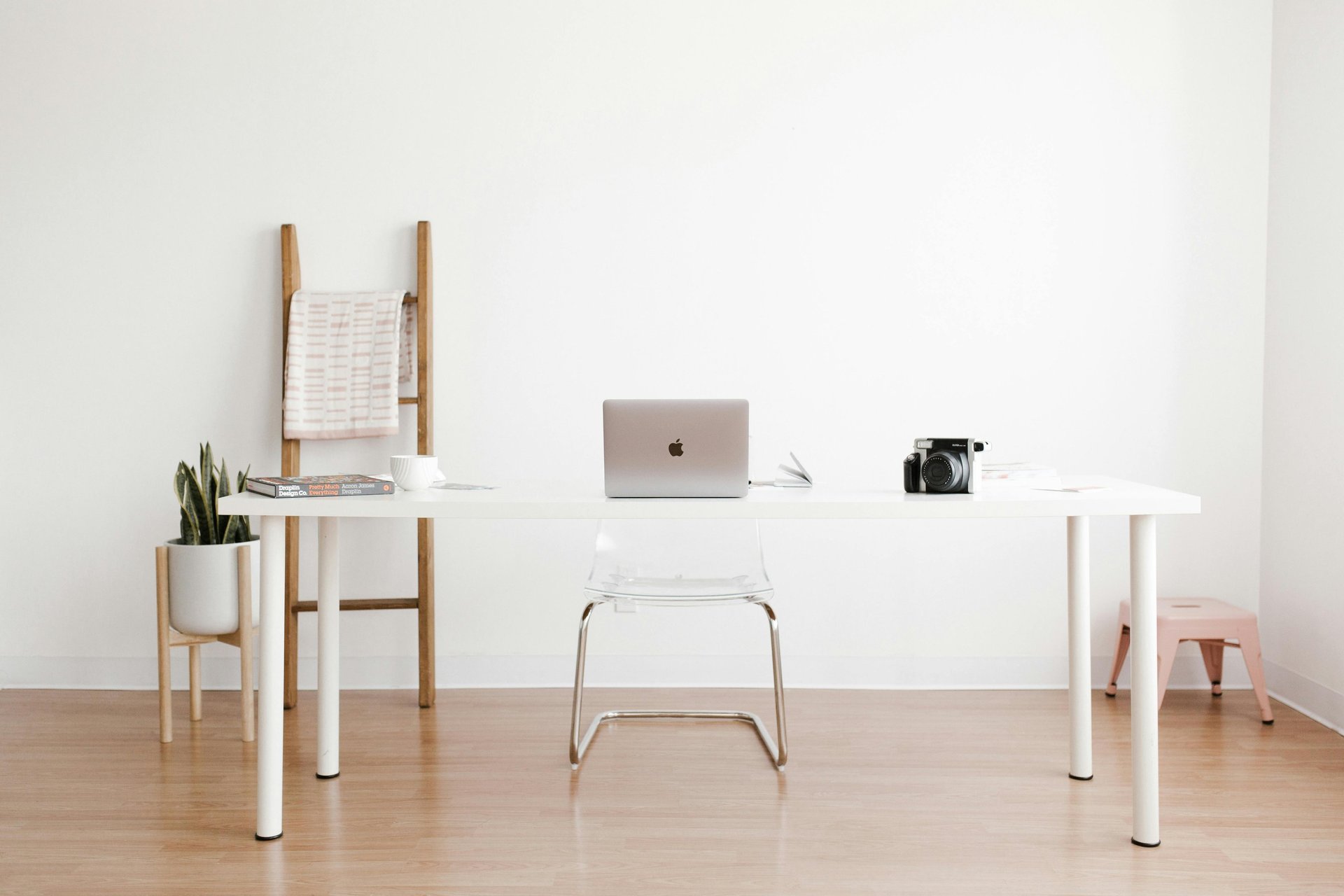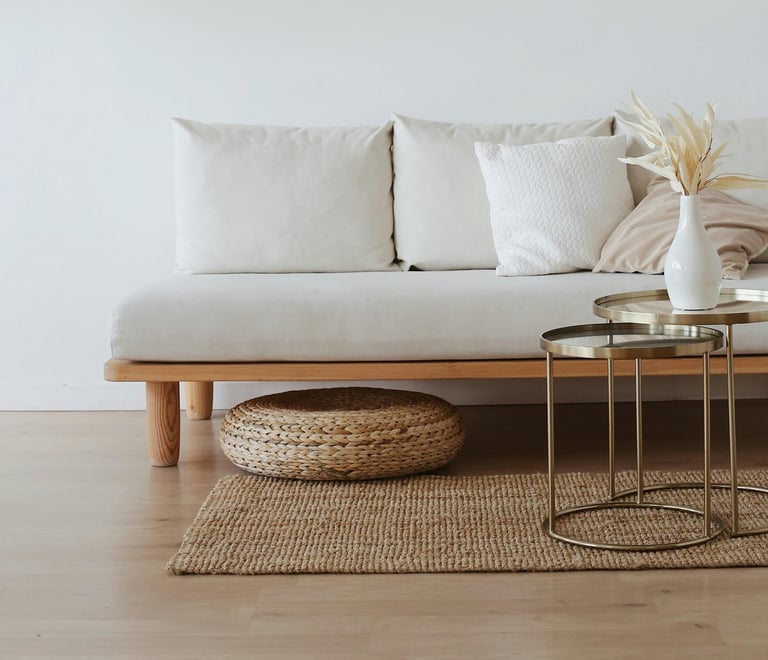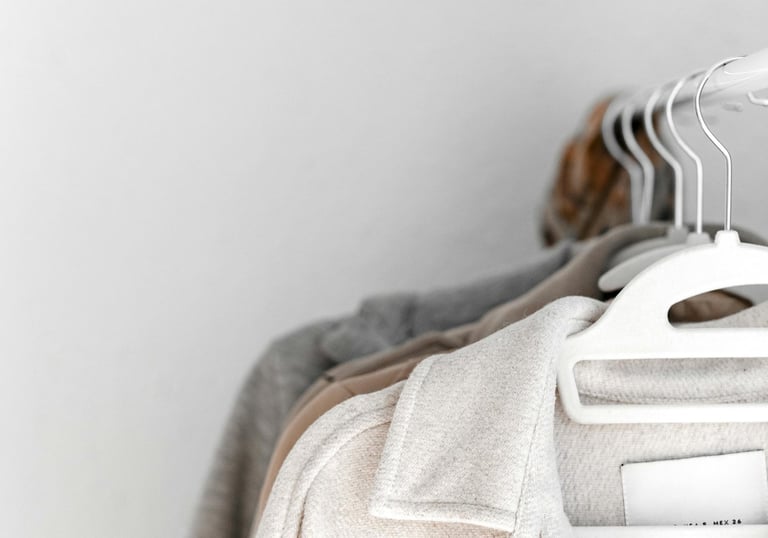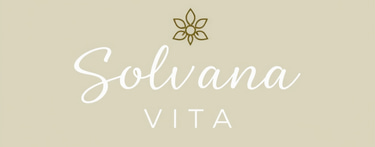
Minimalism: The Key to Happiness and Mental Clarity
Minimalism is a mindset that focuses on living intentionally by decluttering both physical and mental spaces, freeing us from the burden of excess possessions and distractions. By embracing minimalism, we create room for what truly matters—joy, clarity, and meaningful experiences—leading to greater happiness and peace of mind.
HAPPINESS
1/12/20254 min read
Physical Space Equals Mental Space:
Clearing out physical clutter has a profound effect on mental clarity. A tidy, open space allows the mind to breathe, focus, and relax. Walking into a serene, organized room feels like a breath of fresh air—a sanctuary where you can think clearly and recharge.
Studies have shown that organized environments reduce stress, improve productivity, and even enhance creativity. With fewer distractions, your mind can fully engage with the present moment.
Freedom from Materialism:
Owning less reduces the pressure to keep up with societal expectations. Minimalism reminds us that our worth isn’t tied to what we own, but to who we are and the relationships we nurture.
The absence of excess possessions fosters gratitude for what we do have. Imagine cherishing a few well-loved items rather than being indifferent to an overflowing collection. This shift cultivates contentment and joy.
Enhanced Decision-Making:
A minimalist wardrobe, for instance, simplifies daily choices. Instead of agonizing over what to wear, you can effortlessly select an outfit, leaving more mental energy for meaningful tasks.
The same principle applies to other areas of life. Fewer choices mean less overwhelm, giving you a sense of control and ease.


Minimalism: The Key to Happiness and Mental Clarity
In a world overflowing with material possessions and constant distractions, the concept of minimalism offers a refreshing and heartwarming perspective: less is truly more. Minimalism is not just a lifestyle choice but a mindset that prioritizes intentionality, clarity, and freedom. By embracing minimalism, we create space—both physically and mentally—to focus on what truly matters and to rediscover joy in simplicity.
The Burden of Excess
Modern life often encourages accumulation because of the materialistic society we live in. From gadgets and clothing to furniture and decorations, it’s easy to fill our homes and lives with things we rarely use or truly value. This excess doesn’t just occupy physical space; it also clutters our minds. Each item demands attention, whether it’s through maintenance, cleaning, or the guilt of neglect. Over time, this constant noise from our possessions can weigh us down, leading to stress, anxiety, and even decision fatigue.
Think about the last time you searched for something important, only to be overwhelmed by the chaos of unnecessary items. Or the moments you felt burdened by the idea of tidying up an overflowing space. These experiences highlight how excess steals our energy and peace of mind.
The Liberation of Letting Go
Minimalism liberates us by shifting our focus from ownership to intentionality. By reducing our possessions to the essentials, we free ourselves from the chains of clutter. Here’s how:


The Joy of Living with Less
When we own fewer things, we create space for experiences, relationships, and self-growth. Minimalism allows us to prioritize what truly matters and to let go of the distractions that pull us away from happiness. Here are some key benefits:
Financial Freedom: By focusing on buying only what we need, we save money, reduce debt, and open the door to pursuing enriching experiences—like travel or hobbies—that make life more fulfilling. Concentrating on experiences shifts the focus from accumulating physical objects to cherishing how we spend our time. Experiences and hobbies remind us of the essence of the human journey: the people we share them with and the connections we build, including the one with ourselves. These moments bring lasting joy that possessions cannot replicate.
Time Savings: Less time spent cleaning, organizing, and shopping means more time for meaningful activities, whether it’s enjoying a quiet moment with a loved one or pursuing a passion project. Just think of all the time spent on dusting those knick-knacks on the shelf or the time spent shopping for yet another outfit that may just sit in your closet and accumulate with the others.
Environmental Impact: Minimalism aligns with sustainable living by reducing waste and consumption. It’s a small but powerful way to contribute to the health of our planet. Every individual leaves a footprint, and it feels good to tread lightly and within our means.
How to Embrace Minimalism
Adopting minimalism doesn’t mean discarding everything overnight. It’s a journey of intentional choices, guided by self-reflection and kindness toward yourself. Here’s how to start:
Start Small:
Begin with one area, like your closet or a single drawer. Assess each item with care: Does it bring you joy? Is it truly necessary? Celebrate every small victory as you let go of what no longer serves you. For example, just the other day I finally finished a bottle that was in the medicine cabinet for years, and I excitedly told my husband about it 😋 make the little things count!
Adopt the One-In-One-Out Rule and the One Year Rule:
For every new item you bring in, let go of an existing one. This helps maintain balance and prevents clutter from creeping back into your life.
If you haven’t worn a piece of clothing, shoes or gotten use out of an object in the past year, it’s time to let it go.
Practice Gratitude:
Take a moment to appreciate what you already have instead of constantly seeking more. Gratitude shifts your focus from scarcity to abundance, filling your heart with contentment.
Focus on Quality over Quantity:
Invest in fewer, high-quality items that last longer and serve a meaningful purpose. Choosing quality over quantity ensures that every item you own adds genuine value to your life.
The Minimalist Mindset
Minimalism isn’t about deprivation; it’s about intention and empowerment. It’s not about living with as little as possible but with just enough. By aligning your possessions with your values and goals, you create a life that’s not only simpler but also richer and more fulfilling.
When you let go of what no longer serves you, you make room for what truly matters—whether it’s deep connections with loved ones, creative pursuits, or simply peace of mind. Minimalism isn’t just a key to happiness—it’s a way to unlock freedom, clarity, and a sense of purpose.
So, are you ready to embrace the liberating power of less? Take the first step today, and discover the joy that awaits in simplicity.
Reach out to me, I would love to hear your thoughts about Minimalism and if you practice it as well!
